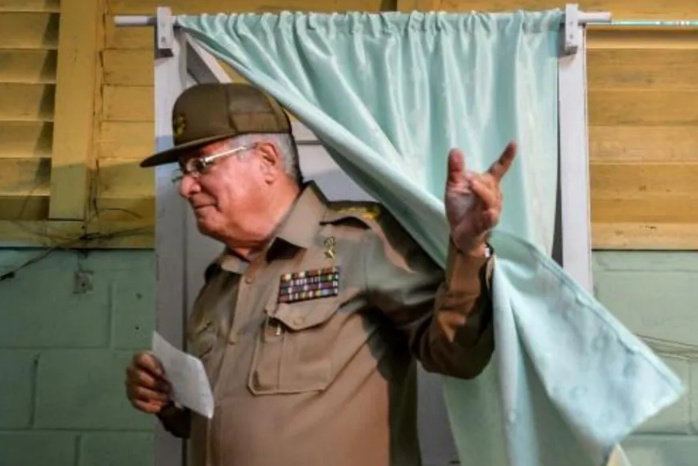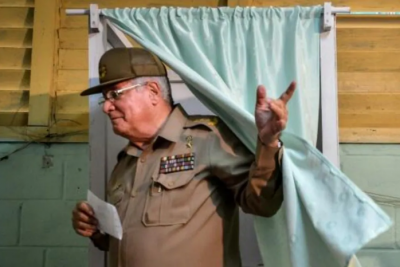On Thursday, the United States imposed symbolic financial sanctions on the Cuban Defense Minister in response to the "suppression of peaceful pro-democracy protests" that recently took place in Cuba, while threatening further punitive measures. U.S. President Joe Biden warned in a statement that the sanctions are "only the beginning. The United States will continue to impose sanctions on those responsible for suppressing the Cuban people." He unequivocally condemned the "mass arrests and sham trials" targeting "those who dare to speak out." The U.S. President pledged to "pressure the regime to immediately release political prisoners unjustly detained, restore internet service, and allow Cubans to enjoy their fundamental rights."
Thousands of Cubans took to the streets in dozens of cities and towns on July 11 and 12, protesting the economic and health crisis, chanting phrases like "We are hungry," "Freedom," and "Down with the dictatorship." Following these gatherings, which resulted in one protester being killed and dozens injured, approximately one hundred people were arrested, according to opposition groups. Washington quickly condemned that crackdown, expressing its support for the demonstrators and promising to assist the Cuban people. However, Biden found himself under increasing pressure from Congress and the large Cuban-American community to take concrete actions.
Consequently, the Treasury Department announced on Thursday financial sanctions targeting Cuban Defense Minister Alvaro Lopez Miera and the "black berets," a special unit of the Interior Ministry deployed during the protests to "suppress" or "attack" participants. Any assets belonging to these individuals within the United States will be frozen, and they will be barred from accessing the U.S. financial system. However, the impact of these punitive measures, which are added to broader sanctions targeting the Caribbean island for decades, is extremely limited.
When asked about the symbolic nature of the new sanctions, U.S. State Department spokesperson Ned Price acknowledged that the goal is "largely to send a message." Like Biden, Price emphasized that the U.S. "will continue to explore" measures to hold accountable those responsible for the repression. Meanwhile, U.S. Treasury Secretary Janet Yellen stated in a statement that "the Cuban people are protesting for basic rights that their government should guarantee them," vowing to continue imposing sanctions on the island to support their "quest for democracy."
In response, Cuba rejected the sanctions announced by Washington on its Defense Minister. Cuban Foreign Minister Bruno Rodriguez wrote on Twitter that the United States "should apply to itself the comprehensive Magnitsky law due to daily repression and police violence that claimed the lives of 1,201 people in 2020" on its territory. Rodriguez added, "I reject the baseless sanctions imposed by the U.S. government against Alvaro Lopez Miera and the special national brigade," describing them as "slander."
Aside from sanctions, Biden attempted to extend a hand to the Cuban people, asserting that his administration intends to allow individuals to make financial transfers to Cuba and pledging to increase the number of staff at the U.S. embassy in Havana "to provide consular services to Cubans," which could ultimately translate into issuing U.S. visas to those wishing to leave the country. However, these two measures face complex obstacles. Financial transfers to Cubans by their relatives in the United States will only be permitted if Washington finds "the tools, tactics, and procedures" to prevent the funds from going to "Cuban government coffers," according to Price. A timeline for the task force responsible for exploring this issue has not been specified.
Moreover, the U.S. State Department refused to set a deadline regarding the increase of diplomats in Cuba, as ensuring their safety is a priority, given that "Havana syndrome" incidents have targeted U.S. diplomats, referring to mysterious "health incidents."




